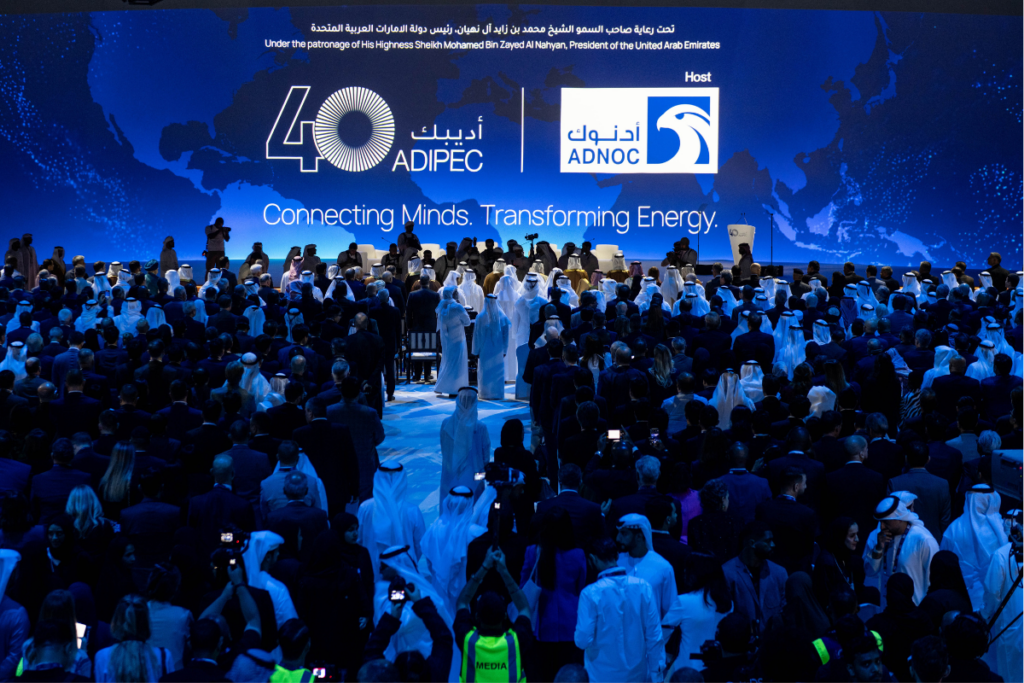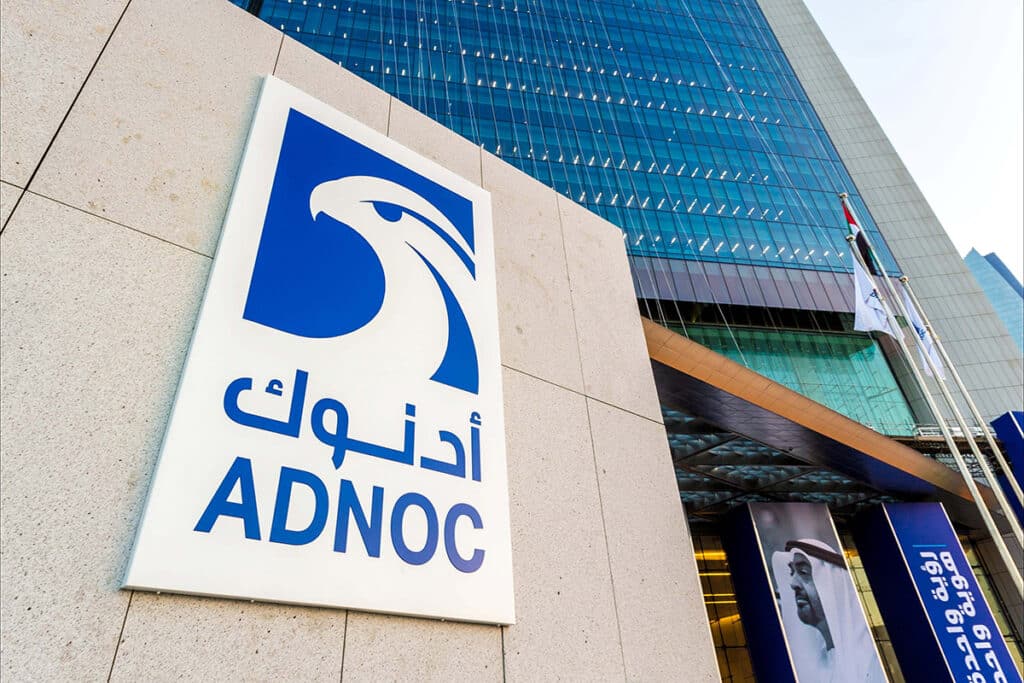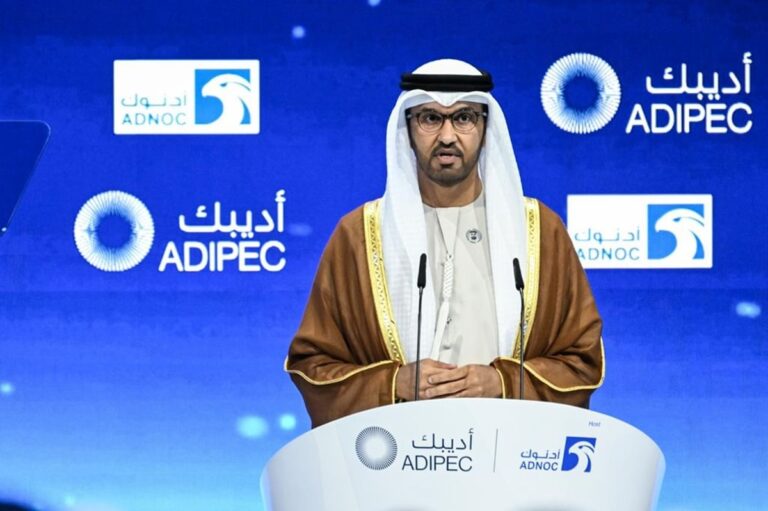Hosted by ADNOC, the event runs until Thursday, November 6, bringing together world energy leaders, policymakers and investors.
Delivering the keynote address at the 41st edition of ADIPEC, Dr Sultan Ahmed Al Jaber, Minister of Industry and Advanced Technology and ADNOC Managing Director and Group CEO, called on the energy industry to follow the UAE’s lead in driving pragmatic, partnership-based policies that create jobs, strengthen economies and enhance global competitiveness.
‘Pragmatic, not performative’
Dr Al Jaber said the UAE’s pragmatic approach demonstrates how policy grounded in reality builds investor confidence.
He said: “Here in the UAE, our approach optimises energy, attracts capital, advances technology and works with industry on practical policy solutions.
“Global capital continues to flow into the UAE because investors value credibility, appreciate predictability and put a premium on trust. All are found in Abu Dhabi and across the UAE.”
He added that policies should be “pragmatic, not performative, based on insight, not ideology, built on first principles, not fleeting popularity. Regulation without realism and legislation without logic will only weaken economies, stunt societies and drive capital away.”
AI and efficiency at ADNOC
Citing ADNOC’s achievements, Dr Al Jaber said: “At ADNOC, we are using every technology available, including AI and robotics to collapse time and expand value. Through our home-grown company AIQ, we have embedded over 200 AI use cases, from the wellhead to the trading floor.
“These tools are cutting unplanned shutdowns by half and enhancing performance across our business.”
He added that ADNOC’s Energy to the Power of AI programme will make production forecasts 90 per cent more accurate, describing the company’s goal of becoming the “most AI-native energy company.”

‘Tune out the noise, track the signal’
Addressing market volatility, Dr Al Jaber said: “With all the static around, it can be difficult to focus on what is really material to our business. And at times like these, my approach is simple: tune out the noise, track the signal.
“And the signal is telling us that near-term uncertainty is real, while long-term demand remains strong. It is telling us to balance cost discipline with capital investment. Stay laser-focused on efficiency, while investing in people, technology and AI.”
He noted that while short-term headwinds may persist, long-term global energy demand will continue to rise.
$4tn annual investment needed
Dr Al Jaber said the world must invest $4tn annually in grids, data centres and energy systems to meet future needs.
“You can’t run tomorrow’s economy on yesterday’s grid,” he said, highlighting that by 2040 electricity demand will surge as power use by data centres quadruples, 1.5bn people move to cities, and more than 2bn air conditioners come online.
Aviation demand will also double the global fleet from 25,000 to 50,000 planes.
He added that renewables will more than double, LNG will grow 50 per cent, jet fuel over 30 per cent, and oil demand will stay above 100 million barrels per day beyond 2040—increasingly used for materials as well as mobility.
“This all adds up to something far more complex than a single-path energy transition. What we are really talking about here is energy reinforcement, not replacement.”

Energy and AI: twin engines of growth
Dr Al Jaber said the ENACT Majlis, held on the eve of ADIPEC, brought together leaders from energy, technology, finance and policy to discuss how to “ignite the twin engines of energy and AI.”
He explained that gas currently provides more than a quarter of the baseload power for data centres, and a shortage of gas turbines is creating a supply constraint that is pushing electricity prices higher.
“Infrastructure is still way behind where it needs to be. We need at least six million kilometres of new transmission lines by 2050.
“The fact is that capital is available; we need the right structures in place to de-risk and ensure it flows to the right places. Most importantly, policy must enable progress, not obstruct growth.”
UAE as investment hub
Dr Al Jaber emphasised the UAE’s strong investment environment: “When efficiency counts, this is the place where the lowest-cost and lowest-carbon barrels live. When capital seeks certainty, here is where you will find the best bang for your buck.
“When good governance and rule of law are crucial, here is where partnerships are rock solid and ROI is secured.”
He said ADNOC, through its international investment arm XRG, has completed gas deals in Mozambique, Egypt, Turkmenistan, Azerbaijan and the United States, while expanding across five continents in chemicals and investing in smart-energy infrastructure to open new corridors for growth.
“We are open for business—but more than that, we’re open for boldness.”

